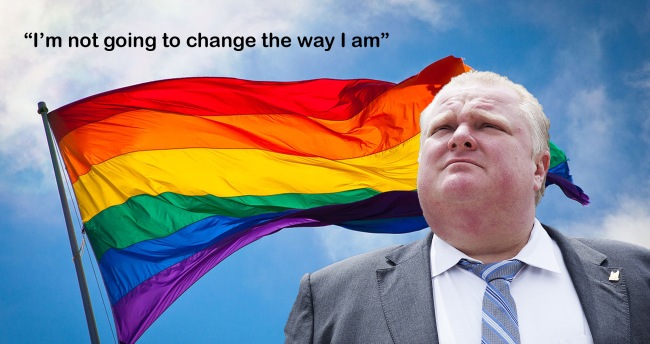It will be an ecstatic day for Torontonians and a somber day for writers such as myself when Rob Ford decides to finally shut up.
Back in February, while the 2014 Olympic Winter Games were still being held in Sochi, the City of Toronto decided to raise a rainbow flag outside of city hall in support of LGBTQ athletes. This caused a stir in the media since our wonderful mayor yet again put his foot in his mouth by voicing his opinion on the matter.
Ford believes that the flag should be removed and replaced with the Canadian flag because, “This is about the Olympics, this is about being patriotic to your country”. Well Mr. Mayor, did it not occur to you that supporting our oppressed athletes while they are away from home is patriotic? Of course not. It should also be noted that the Canadian flag already flies outside in Nathan Phillips Square.
Ford’s attitude has brought on plenty of speculation from members of the city council as well as from the general public. It is believed that Ford is masking his homophobic beliefs with the claim that, “[He] feels that their Olympic spirit is supposed to be non-politicized” (as expressed by the mayor’s chief of staff, Dan Jacobs).
This is further enforced by Ford’s recent statement claiming that he will not be attending the annual Toronto pride parade due to “personal reasons”. It is absolutely ludicrous that the leader of the largest city in Canada should not be attending a major citywide event, particularly since this year’s Toronto pride parade is also in celebration of World Pride. This celebration will include not only LGBTQ community members and supporters from Canada but also those from around the world.
If Ford believes that stating: “I’ve never gone to a Pride parade. So I’m not going to change the way I am.” excuses him from his duties as mayor and a decent human being, I’d be more than happy to excuse him from his high-paying position. Who’s with me?
– Lily Maase
